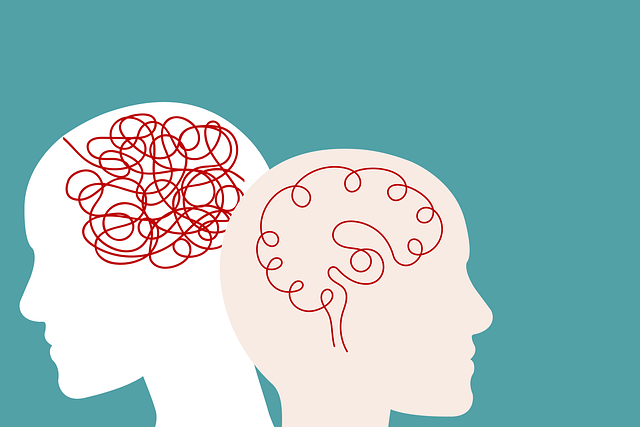Longmont Eating Disorders Therapy offers comprehensive solutions for managing anxiety through cognitive behavioral therapy (CBT), stress reduction methods, and tailored self-care practices. By addressing root causes and promoting emotional intelligence, their approach helps individuals overcome co-occurring anxiety disorders and eating issues, fostering long-term mental wellness with a focus on mindfulness, exercise, and healthy lifestyles.
Anxiety is a common challenge, but effective management techniques can empower individuals to overcome it. In this guide, we explore comprehensive strategies for tackling anxiety, from understanding its underlying patterns and triggers to powerful therapeutic approaches like Cognitive Behavioral Therapy (CBT). Additionally, we delve into lifestyle changes and holistic methods that complement professional treatments, such as those offered by Longmont Eating Disorders Therapy. By implementing these techniques, you can take control of your mental well-being and lead a more balanced life.
- Understanding Anxiety: Recognizing Patterns and Triggers
- Cognitive Behavioral Therapy (CBT): A Powerful Tool for Overcoming Anxiety
- Lifestyle Changes and Holistic Approaches to Managing Anxiety
Understanding Anxiety: Recognizing Patterns and Triggers

Anxiety is a natural response to stress, but when it becomes persistent and overwhelming, it can disrupt daily life. Recognizing patterns and triggers is a crucial step in managing anxiety effectively. Individuals experiencing anxiety often report specific situations or environments that consistently evoke feelings of unease or fear. These triggers can be as simple as crowded places, public speaking engagements, or even certain foods. For instance, someone struggling with an eating disorder might find that certain textures or types of food trigger intense anxiety and distress. Understanding these patterns allows individuals to develop personalized strategies for coping with anxiety.
Longmont Eating Disorders Therapy offers valuable insights into the intricate relationship between anxiety and eating disorders, focusing on self-esteem improvement and communication strategies as key components of treatment. By identifying triggers and understanding individual responses, people can begin to manage their anxiety in healthier ways. Incorporating self-care practices into daily routines is also essential for mitigating anxiety symptoms. This might include mindfulness exercises, regular physical activity, or engaging in hobbies that foster a sense of calm and relaxation.
Cognitive Behavioral Therapy (CBT): A Powerful Tool for Overcoming Anxiety

Cognitive Behavioral Therapy (CBT) is a highly effective and evidence-based approach to managing anxiety disorders. By focusing on identifying and modifying negative thought patterns and behaviors, CBT empowers individuals to gain control over their anxious responses. This therapy technique has been extensively studied and proven successful in treating various types of anxiety, from social phobias to generalized anxiety disorder.
In the context of Longmont eating disorders therapy, CBT plays a pivotal role in addressing co-occurring anxiety issues. Mental health professionals can utilize CBT to help clients understand and challenge distorted thinking, thus reducing anxiety symptoms and improving overall mood management. The Risk Assessment for Mental Health Professionals is crucial here, as it ensures safe and effective treatment planning. By integrating Stress Reduction Methods within CBT, therapists can offer comprehensive care, enabling individuals to develop healthy coping strategies for both their eating disorders and anxiety.
Lifestyle Changes and Holistic Approaches to Managing Anxiety

Anxiety management isn’t just about treating symptoms; it’s also about adopting a holistic approach that addresses the root causes and promotes long-term mental wellness. Beyond traditional therapy, incorporating lifestyle changes can significantly reduce anxiety levels. This might involve practicing mindfulness or meditation to cultivate emotional intelligence and better navigate stressful situations. Engaging in regular physical activity, prioritizing quality sleep, and cultivating a balanced diet are all evidence-based strategies backed by Longmont Eating Disorders Therapy professionals.
Creating a self-care routine focused on these areas can be transformative. By integrating practices that nurture both mind and body, individuals can build resilience against anxiety triggers. Remember, mental health is a complex tapestry woven from various threads – including social connections, stress management techniques, and a deep sense of purpose. Through dedicated effort, it’s possible to weave a stronger, more resilient fabric that protects against the ravages of anxiety.
Anxiety management is a personalized journey, and with the right tools, anyone can learn to overcome their fears. By understanding anxiety’s triggers and patterns (as recognized by Longmont Eating Disorders Therapy), individuals can effectively employ Cognitive Behavioral Therapy (CBT) as a powerful treatment method. Additionally, adopting lifestyle changes and holistic approaches offers valuable support in managing anxiety symptoms. Combining these strategies allows for a comprehensive approach to well-being, empowering individuals to live more balanced and fulfilling lives.














